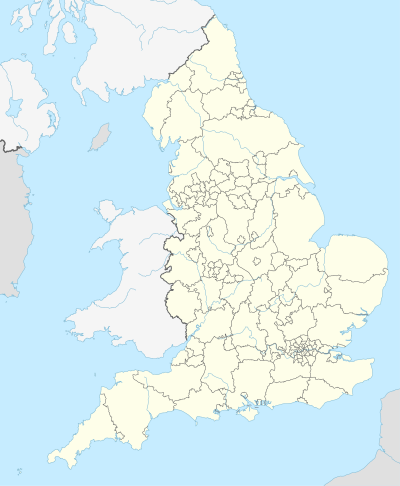1979 Cricket World Cup
 From Wikipedia the free encyclopedia
From Wikipedia the free encyclopedia
 | |
| Dates | 9 June – 23 June 1979 |
|---|---|
| Administrator(s) | International Cricket Council |
| Cricket format | One Day International |
| Tournament format(s) | Round-robin and Knockout |
| Host(s) | |
| Champions | |
| Runners-up | |
| Participants | 8 |
| Matches | 15 |
| Attendance | 132,000 (8,800 per match) |
| Most runs | |
| Most wickets | |
The 1979 Cricket World Cup (officially called the Prudential Cup '79) was the second edition of the Cricket World Cup. Organised by the International Cricket Conference, it was held in England from 9 to 23 June 1979.
The tournament was once again sponsored by the Prudential Assurance Company and had eight teams participating in the tournament with the only change being Canada who qualified with Sri Lanka in the qualifier for the tournament. The format remained the same with two teams qualifying from each group with the final once again being at Lord's.
England joined first-time semi-finalists Pakistan as the qualifiers from Group A, while the West Indies finished top of Group B ahead of New Zealand. After the West Indies and England both won their semi-finals over Pakistan and New Zealand respectively, they met in the final at Lord's with the West Indies defending their title from four years earlier with a 92 run victory. West Indian batsman, Gordon Greenidge ended the tournament as the leading run scorer with 253 runs from four matches with English player Mike Hendrick ending up as the leading wicket taker with ten wickets.
Format
[edit]The eight teams at the tournament were split into two groups of four teams, with each team playing the others in their group in a single round-robin format. The top two teams from each group then advance to the semi-finals to play in a single-elimination tournament.
Participants
[edit]
The 1979 tournament saw the first qualifiers in a World Cup. The 1979 ICC Trophy was held during late May and early June at various grounds in the English Midlands, with the two finalists qualifying for the World Cup where they joined the six Test nations who qualified automatically.[1] Sri Lanka and Canada qualified after defeating Denmark and Bermuda respectively in the semi-finals.[2]
| Team | Method of qualification | Finals appearances | Last appearance | Previous best performance | Group |
|---|---|---|---|---|---|
| Hosts | 2nd | 1975 | Semi-finals (1975) | A | |
| Full member | 2nd | 1975 | Group stage (1975) | B | |
| 2nd | 1975 | Runners-up (1975) | A | ||
| 2nd | 1975 | Group stage (1975) | A | ||
| 2nd | 1975 | Champions (1975) | B | ||
| 2nd | 1975 | Semi-finals (1975) | B | ||
| 1979 ICC Trophy winner | 2nd | 1975 | Group stage (1975) | B | |
| 1979 ICC Trophy runner-up | 1st | — | Debut | A |
Venues
[edit]| London | London | |
|---|---|---|
| Lord's Cricket Ground | The Oval | |
| Capacity: 30,000 | Capacity: 23,500 | |
 | 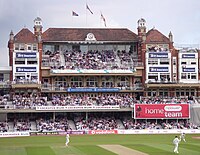 | |
| Birmingham | Manchester | |
| Edgbaston Cricket Ground | Old Trafford Cricket Ground | |
| Capacity: 21,000 | Capacity: 19,000 | |
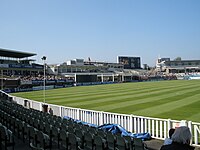 | 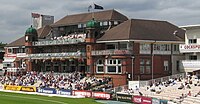 | |
| Nottingham | Leeds | |
| Trent Bridge | Headingley Cricket Ground | |
| Capacity: 15,350 | Capacity: 14,000 | |
 | 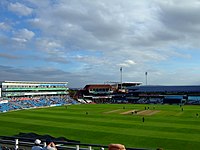 |
Squads
[edit]Group stage
[edit]Summary
[edit]The opening round of matches took place on 9 June with four matches being played. England took on Australia at Lord's and after the home team elected to field first, restricted the Australians to 97 for one with fine fielding and bowling. After Andrew Hilditch dragged his second ball after lunch into the stumps, the Australians would be restricted for 159 which included four run-outs. The run-chase saw Mike Brearley and Graham Gooch control the innings and led England to a six wicket victory.[3]
Group A
[edit]| Pos | Team | Pld | W | L | T | NR | Pts | RR |
|---|---|---|---|---|---|---|---|---|
| 1 | 3 | 3 | 0 | 0 | 0 | 12 | 3.066 | |
| 2 | 3 | 2 | 1 | 0 | 0 | 8 | 3.602 | |
| 3 | 3 | 1 | 2 | 0 | 0 | 4 | 3.164 | |
| 4 | 3 | 0 | 3 | 0 | 0 | 0 | 1.606 |
Group B
[edit]| Pos | Team | Pld | W | L | T | NR | Pts | RR |
|---|---|---|---|---|---|---|---|---|
| 1 | 3 | 2 | 0 | 0 | 1 | 10 | 3.928 | |
| 2 | 3 | 2 | 1 | 0 | 0 | 8 | 3.553 | |
| 3 | 3 | 1 | 1 | 0 | 1 | 6 | 3.558 | |
| 4 | 3 | 0 | 3 | 0 | 0 | 0 | 3.128 |
Knockout stage
[edit]| Semi-finals | Final | |||||
| 20 June – Old Trafford, Manchester | ||||||
| 221/8 | ||||||
| 23 June – Lord's, London | ||||||
| 212/9 | ||||||
| 194 | ||||||
| 20 June – The Oval, London | ||||||
| 286/9 | ||||||
| 293/6 | ||||||
| 250 | ||||||
Semi-finals
[edit]In a very close semi-final match, England prevailed. New Zealand won the toss and fielded. England began badly, falling to 38/2, before Mike Brearley (53 from 115 balls, 3 fours) and Graham Gooch (71 from 84 balls, 1 four, 3 sixes) resurrected the innings. Derek Randall (42 from 50 balls, 1 four, 1 six) played well in the second half of the innings, as England recovered from 98/4 to post 221 (8 wickets, 60 overs). In the response, John Wright (69 from 137 balls) attacked well in the beginning. However, the loss of wickets bogged New Zealand down, and despite several late flourishes in the batting order, New Zealand started to drop behind. When New Zealand could not achieve the remaining 14 runs from the last over of the match, England went into the final.
Gordon Greenidge (73 from 107 balls, 5 fours, 1 six) and Desmond Haynes (65 from 115 balls, 4 fours) set a first wicket partnership of 132 runs in a match dominated by batting. Vivian Richards and Clive Lloyd also contributed solidly, as West Indies ran up 293 (6 wickets, 60 overs) against Pakistan. Majid Khan (81 from 124 balls, 7 fours) and Zaheer Abbas (93 from 122 balls) shared a second-wicket partnership of 166 runs in 36 overs in the response. However, none of the other Pakistani batsmen flourished, with Javed Miandad being bowled for a duck first ball, and Pakistan lost 9/74, beginning with the dismissal of Abbas. Pakistan was bowled out for 250 in 56.2 overs in the high-scoring semi-final, sending the West Indies to the final.
Final
[edit]England won the toss and chose to field first. The West Indies got off to a bad start, falling to 99/4 with the loss of Greenidge, Haynes, Kallicharan, and captain Clive Lloyd. However, Vivian Richards (138 from 157 balls, 11 fours, 3 sixes) and Collis King (86 from 66 balls, 10 fours, 3 sixes) consolidated the innings. King especially ripped through the English bowling, with a strike rate of 130.3. The West Indies were already at 238/5 when the 139 run partnership ended with the loss of Collis King. Vivian Richards and the tail then took the West Indies to a very imposing total of 286 (9 wickets, 60 overs).
The English batsmen got off to a good start. But the openers, Mike Brearley (64 from 130 balls, 7 fours) and Geoff Boycott (57 from 105 balls, 3 fours) scored very slowly. They put together a very methodical opening partnership of 129 runs in 38 overs, playing as if the match were a five-day Test. By the time both batsmen were out, the required run rate had risen too high. Graham Gooch played some hefty strokes in scoring his 32, taking England to 183/2. However, the loss of Derek Randall triggered a batting collapse in which England lost their last eight wickets for 11 runs to finish all out for 194 in 51 overs. Vivian Richards was declared Man of the Match.
Statistics
[edit]Gordon Greenidge ended the tournament as the leading run scorer with 253 runs coming from his four games. Second was fellow West Indian player, Viv Richards who finished with 217 runs from four games which included the highest individual score of the tournament of 138 in the final. Graham Gooch from England rounded out the top three.[4] Mike Hendrick from England was the leading wicket taker for the tournament with ten wickets from five matches with a three-way tie for second place with Brian McKechnie (New Zealand), Asif Iqbal (Pakistan) and Chris Old each taking nine wickets for the tournament.[5]
Most runs
[edit]| Player | Team | Mat | Inns | Runs | Ave | SR | HS | 100 | 50 | 4s | 6s |
|---|---|---|---|---|---|---|---|---|---|---|---|
| Gordon Greenidge | 4 | 4 | 253 | 84.33 | 62.31 | 106* | 1 | 2 | 17 | 3 | |
| Viv Richards | 4 | 4 | 217 | 108.50 | 74.06 | 138* | 1 | 0 | 13+ | 4+ | |
| Graham Gooch | 5 | 5 | 210 | 52.50 | 63.82 | 71 | 0 | 2 | 18 | 4 | |
| Glenn Turner | 4 | 4 | 176 | 88.00 | 56.05 | 83* | 0 | 1 | 12+ | 0+ | |
| John Wright | 4 | 4 | 166 | 41.50 | 50.00 | 69 | 0 | 1 | 16+ | 0+ |
Most wickets
[edit]| Player | Team | Mat | Inns | Wkts | Ave | Econ | BBI | SR |
|---|---|---|---|---|---|---|---|---|
| Mike Hendrick | 5 | 5 | 10 | 14.90 | 2.66 | 4/15 | 33.6 | |
| Brian McKechnie | 4 | 4 | 9 | 15.66 | 3.07 | 3/24 | 30.5 | |
| Asif Iqbal | 4 | 4 | 9 | 17.44 | 3.34 | 4/56 | 31.3 | |
| Chris Old | 5 | 5 | 9 | 17.44 | 2.70 | 4/8 | 38.6 | |
| Michael Holding | 4 | 4 | 8 | 13.25 | 2.58 | 4/33 | 30.7 |
Attendance
[edit]The total attendance at the tournament was 132,000,[6] including 25,000 at the final.[7]
References
[edit]- ^ "ICC Trophy 1979 – background". ESPNcricinfo.com. Archived from the original on 9 November 2013. Retrieved 9 November 2013.
- ^ "Canada fight back to earn Cup place". The Daily Telegraph. 7 June 1979. p. 33.
- ^ Melford, Michael (11 June 1979). "England triumph in fine show of all-round skills". The Guardian. p. 30.
- ^ "Cricket World Cup: Highest Run Scorers". ESPNcricinfo. Retrieved 23 August 2011.
- ^ "Cricket World Cup: Most Wickets". ESPNcricinfo. Retrieved 23 August 2011.
- ^ "The Prudential World Cup 1979". Wisden Almanack. 1 January 1980.
- ^ "The Richards Cup". ESPNcricinfo. 3 November 2014.
